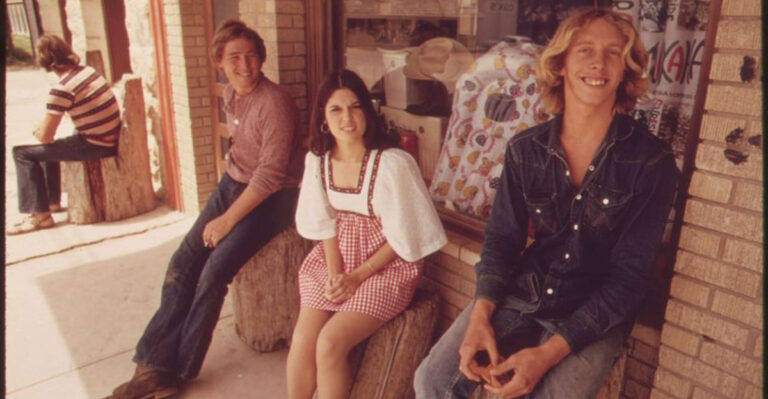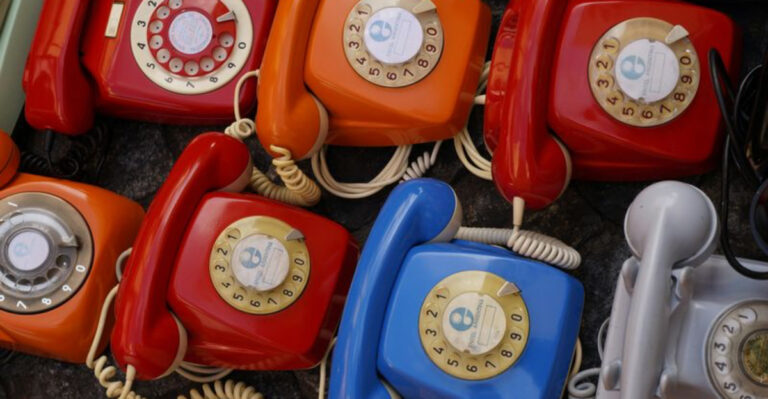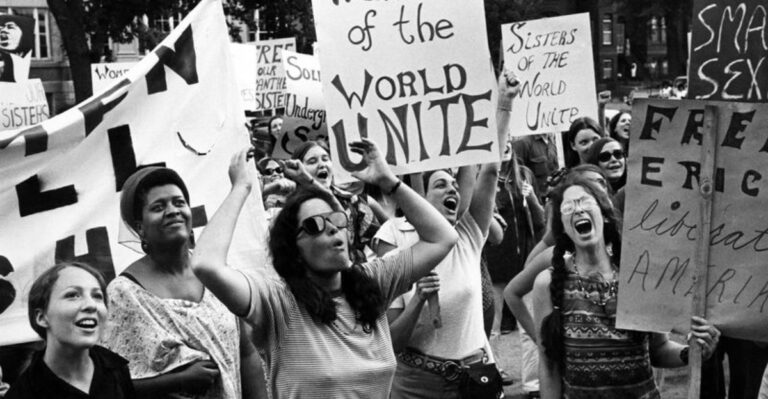How It Feels to Be Cheated on in Your 60s: 17 Stories from Women Who Lived It
You never expect to face betrayal when you’re older—when you’ve built a life, a history, and a trust that feels unshakable.
But for many women in their 60s, infidelity isn’t just a young person’s heartbreak—it’s a gut punch that hits when the stakes feel higher and the wounds cut deeper.
In this honest and emotional collection, 17 women open up about what it really feels like to be cheated on later in life.
From shock and sadness to unexpected strength, these stories aren’t just about loss—they’re about reclaiming power, rewriting the narrative, and learning that it’s never too late to heal, grow, or walk away with your head held high.
1. “I didn’t just lose my husband—I lost my future.”

We had plans. Grandkids. Travel. I never imagined I’d be Googling ‘divorce lawyers’ at 62. My world flipped overnight. Suddenly, the future I pictured vanished. Everything felt uncertain. Our shared dreams were now just mine.
And I didn’t know how to live those dreams alone. It felt like a cruel joke, waking up to an empty side of the bed, knowing he was building new memories with someone else. The hurt was raw, like stepping on shattered glass.
I had to redefine what my future would look like, piece by painful piece. My identity as a wife dissolved, leaving me to find who I was without him.
Rediscovering myself became a journey I never signed up for, but it also taught me resilience. This new chapter was not what I had planned, yet it was mine to own. It was an unexpected journey of self-discovery.
2. “It made me question every memory.”

Was he lying back then too? Did he ever mean it when he said he loved me? Suddenly, 30 years felt like fiction. Every memory was under scrutiny, like old films reeling through my mind with a different lens. The joy, the laughter, all of it felt tainted.
I found myself replaying moments, searching for signs I might have missed. It was exhausting, like trying to solve a puzzle with missing pieces. Trust, once the foundation of our relationship, crumbled like a brittle old book.
Yet, amid the doubt, I realized I couldn’t rewrite history, but I could reclaim my narrative. My memories, though now bittersweet, were part of me. This realization was freeing.
I chose to cherish the genuine moments and learn from the illusions. It was a pivotal moment of letting go and moving forward.
3. “I felt invisible. Like I’d aged out of being desirable.”

He traded me in for someone younger. It crushed me in a way I didn’t see coming. Suddenly, I was questioning my worth, staring at my reflection and seeing only flaws. It was as if the years stripped me of my allure, leaving me invisible.
I felt discarded, like yesterday’s news. The sting of betrayal mingled with a deeper, personal hurt. It was more than losing him; it was losing belief in my desirability.
But this pain pushed me to rediscover myself. I started dressing for me, embracing my age, and finding beauty in places I hadn’t looked before. Rejection became a catalyst for self-love.
I learned that my value wasn’t tied to someone else’s opinion, but to my own view of myself. My journey to self-appreciation was empowering, turning invisibility into visibility on my terms.
4. “I wasn’t shocked he cheated. I was shocked I stayed.”

I used to think cheating would be a dealbreaker. But when it happened, I froze. I needed time to figure out who I was without him. The truth was, leaving felt scarier than staying. The comfort of familiarity wrapped around me, and I grappled with fear of the unknown.
The idea of starting anew was daunting. In my 60s, I wasn’t eager to leap into the uncharted. So, I stayed, at least for the time being. It was a decision I hadn’t anticipated, but it was mine to make.
Pause gave me clarity. I learned that staying doesn’t equate to weakness, but a choice for stability while I gathered strength. Slowly, I began to redefine my boundaries and what I wanted from life.
It wasn’t about him anymore; it was about me and what made me genuinely happy.
5. “It shattered my identity as a wife.”

Being his partner was my whole role for decades. When he betrayed me, I didn’t know who I was without that title. It felt like losing a part of myself, the part that proudly wore the ‘wife’ badge.
The betrayal struck at my core, leaving a gaping hole in my identity. I had built my life around us, and suddenly, ‘us’ was gone. The title I cherished became a reminder of what was lost.
But slowly, I began to rebuild. I realized I was more than just a wife. I was a friend, a mother, and, most importantly, a person with dreams and desires of my own.
Identity reconstruction was challenging, but it was also liberating. Each step away from the past was a step towards who I was meant to be. I was crafting a new identity, one that was truly mine.
6. “People stopped talking about it after a week. I never stopped thinking about it.”

Everyone else moved on. I was still waking up at 3 a.m., replaying everything in my mind. The silence was deafening, and it felt like the world continued while I was stuck in place. Conversations dwindled, support waned, and everyone expected me to bounce back.
Yet, the wound was still fresh. Nighttime was the hardest, when thoughts swirled and sleep was elusive. The loneliness in those quiet hours was a companion I never wanted.
But this solitude eventually became a space for reflection. I started journaling, writing down my fears, hopes, and dreams. It was therapeutic.
Slowly, I found solace in my own company. The world might have moved on, but I was learning to navigate this new reality at my own pace, finding strength in silence.
7. “I felt embarrassed—as if I had done something wrong.”

I carried shame that wasn’t mine to carry. I thought, What didn’t I do? What did I miss? The embarrassment gnawed at me, even though logically, I knew the betrayal wasn’t my fault. It was an unfair burden, this weight of blame.
I felt exposed, like everyone was watching and judging. Their whispers were imagined, but the shame felt real. It took time to unravel these feelings, to realize they stemmed from betrayal, not truth.
Gradually, I understood that his actions didn’t define me. I wasn’t to blame for his choices. The realization was a turning point.
I began to hold my head higher, to walk with more confidence, shedding the cloak of shame. I embraced my innocence, and with it, came freedom from misplaced guilt.
8. “My adult kids were angry at me for not leaving.”

They couldn’t understand why I stayed. But it’s not black-and-white when your whole life is tied together. My kids’ anger was palpable, their disappointment a heavy cloud in our interactions. They wanted me to leave, to stand up and reclaim my independence.
But it wasn’t that simple. My ties to my husband were woven over decades, and unraveling them wasn’t straightforward. I knew they wanted the best for me, but they didn’t see the whole picture.
Tension forced conversations, raw and honest. I explained my perspective, my need for time to decide what was best for me. It was a tough journey, balancing my desires with their expectations.
Eventually, they began to understand, to support my choices, knowing love sometimes means staying, sometimes leaving, but always choosing for myself.
9. “I discovered strength I didn’t know I had.”

He broke my heart—but he didn’t break me. I surprised myself. I rebuilt. In the aftermath of betrayal, I found strength in places I never knew existed. My resilience was tested, and I emerged stronger.
I took up hiking, embracing the challenge of climbing mountains as a metaphor for my journey. Each step was a victory, a testament to my inner strength. The trails became my sanctuary, a place where I could think and heal.
This newfound strength was empowering. I realized I could rebuild my life on my terms. The journey wasn’t easy, but it was mine.
I learned to lean on myself, to trust my instincts, and find peace in solitude. In the end, I discovered I was stronger than I ever believed possible.
10. “I grieved as if someone had died. Because someone did—the man I thought I married.”

He wasn’t who I thought he was. That realization hurt more than the affair itself. It was like mourning a death, the death of the man I believed I knew. My heart ached with the loss of who he was supposed to be.
The grieving process was complex, layered with anger, sadness, and confusion. I was in mourning for a marriage that no longer existed, for a partner who was just an illusion.
Yet, through grief, I found clarity. I understood the need to let go of what was never real. It was painful but necessary, like shedding an old skin. In letting go, I found peace and the beginnings of acceptance.
I was ready to honor the loss and move forward with my life, wiser and more aware.
11. “Friends didn’t know what to say. So they said nothing.”

The silence was loud. I needed someone to say, ‘This wasn’t your fault.’ The absence of words felt like abandonment, adding to the isolation already gripping me. Friends avoided the topic, perhaps fearing they’d say the wrong thing.
But their silence felt like a judgement. I longed for reassurance, for companionship in my sorrow. It was a lonely road, navigating betrayal without the comfort of those I trusted.
Eventually, I found my voice. I reached out, started conversations, shared my truth. Vulnerability was daunting, but it opened doors to understanding and support.
As I spoke, I realized not everyone knew how to help until I showed them. The journey taught me to advocate for my needs and to seek out connections that respected my healing process.
12. “He was my person. My best friend. And he lied to me for years.”

The betrayal wasn’t just physical. It was emotional. And that’s what haunts me most. He was my confidant, my other half. Discovering his lies felt like losing a part of myself.
The depth of our connection made the betrayal cut deeper. I trusted him with my secrets, my dreams, and he shattered that trust. The emotional betrayal was a wound that took time to heal.
However, in the darkness, I learned the importance of self-reliance. I began nurturing friendships, building a support system that wasn’t reliant on him. Trusting others slowly became possible, and I found strength in community.
This new chapter was about healing and rediscovering my voice. It was about forging new connections, ones built on honesty and respect, helping me heal and move forward.
13. “I stayed—but I’ve never felt more alone.”

He apologized. We’re trying. But there’s a wall now. I don’t know if it will ever come down. Staying was supposed to bring comfort, but instead, it highlighted the divide.
The space between us was filled with unspoken words and unresolved hurt. Our conversations felt hollow, and my heart ached with the solitude of being together yet apart.
Despite this, I stayed hopeful. I focused on small steps towards rebuilding trust, like open dialogues and shared experiences. It was a slow process, one fraught with setbacks and tears.
But I learned that healing takes time and patience. Whether the wall comes down or not, I’m committed to finding peace within myself first. This is my journey, and I’m determined to navigate it with resilience.
14. “I left. And it was terrifying—but freeing.”

I didn’t know how to live on my own after 40 years. But I learned. Slowly. And now, I’m proud. Leaving was the hardest decision, but it was necessary for my sanity and happiness.
The first steps were terrifying, filled with uncertainty and fear of the unknown. But with each day, I discovered new strengths, talents, and passions. The freedom was exhilarating, a breath of fresh air after years of suffocation.
My journey taught me independence, and I embraced it wholeheartedly. I started new hobbies, made new friends, and built a life that was authentically mine.
The liberation was profound, and I realized I was capable of more than I ever imagined. This was my time to shine, and I was determined to make the most of it.
15. “I lost weight, sleep, and joy. Then I slowly found myself again.”

It took months. But I started painting again. Walking. Laughing. I remembered who I was before all this. The initial aftermath was brutal, sapping my energy, my joy, and my health.
But slowly, I began to heal. I picked up the brush, the canvas, and painted my emotions. Each stroke was a cathartic release, helping me reconnect with my inner self.
Yoga became a sanctuary, a place where I found peace and acceptance. It was a gradual journey back to joy, one filled with small victories. As I reclaimed my passions, I found happiness in unexpected places.
Rediscovery was empowering, reminding me of the strength I held within. I was learning to live for me, and it was a beautiful transformation.
16. “I’m still with him—but we’re different people now.”

He’s remorseful. I’m cautious. We’re rebuilding—not what we had, but something we might be able to live with. The betrayal changed us both, and that’s the reality we face every day.
Our relationship is different now, built on cautious hope and tentative trust. We’re learning to communicate in new ways, finding common ground in our shared history.
It’s not the fairy tale I once believed in, but it’s our story, and we’re writing it together. The future feels uncertain, but we face it with honesty.
This new chapter is about compromise and understanding, and though it’s challenging, it’s also an opportunity for growth. The journey isn’t easy, but it’s ours to navigate, and I’m committed to seeing where it leads us.
17. “I never thought I’d date again in my 60s. But here I am—wiser, stronger, and finally choosing me.”

He cheated. I walked away. And now I’m learning what love looks like when I’m not settling. Dating in my 60s was something I never imagined, yet here I am, navigating the world of modern romance.
It’s a journey filled with laughter, awkward moments, and newfound confidence. I’m embracing this stage of life with open arms, knowing what I want and deserve.
Every date is an opportunity to learn, to grow, and to enjoy the company of someone new. It’s a chance to redefine love on my terms. Freedom is empowering, and I’m loving every moment of it.
I’m discovering that love doesn’t have an age limit—it’s about connection, joy, and being true to myself. This is my time to shine, and I’m embracing it fully.







